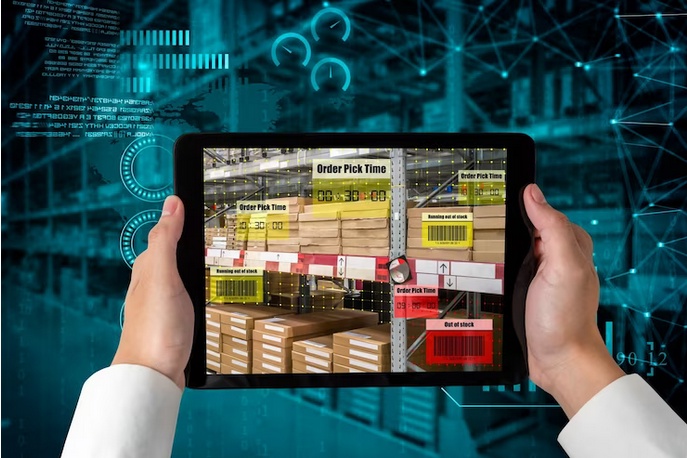Introduction
Supply chain management (SCM) plays a pivotal role in modern business operations, serving as the backbone of the global economy. The efficient flow of goods and services from suppliers to consumers has a direct impact on a company's competitiveness and profitability. In recent years, there has been a significant revolution in supply chain management, primarily driven by the adoption of supply chain management software. This article explores the transformative power of SCM software and its profound influence on businesses across various industries.
The Evolution of Supply Chain Management
Supply chain management has evolved significantly over the years, adapting to changing consumer demands, technological advancements, and global market dynamics. Traditional supply chain systems relied heavily on manual processes, spreadsheets, and fragmented communication, making them error-prone, slow, and inefficient. This led to challenges such as excess inventory, poor demand forecasting, and a lack of visibility across the supply chain. In response, businesses sought a more streamlined and data-driven approach.
The Emergence of SCM Software
The emergence of SCM software marked a significant turning point in the world of supply chain management. These software solutions encompass a range of functionalities, from procurement and production planning to logistics and distribution. They leverage technologies like artificial intelligence, big data analytics, and the Internet of Things (IoT) to provide real-time insights, automation, and collaboration across the entire supply chain.
Enhancing Efficiency and Visibility
One of the most notable benefits of SCM software is the enhancement of supply chain efficiency and visibility. These systems provide real-time data on inventory levels, order status, and production schedules, enabling businesses to make informed decisions. With improved visibility, companies can identify bottlenecks, optimize processes, and respond rapidly to disruptions. This, in turn, reduces lead times and minimizes the carrying costs of excess inventory.
Improved Demand Forecasting
Accurate demand forecasting is crucial for businesses to align their production and inventory levels with actual customer demand. SCM software employs advanced algorithms and historical data analysis to forecast demand more accurately. This helps businesses reduce overstock and stockouts, resulting in increased customer satisfaction and reduced operational costs.
Optimized Supplier Collaboration
Effective collaboration with suppliers is a key component of a successful supply chain. SCM software allows for seamless communication and data exchange with suppliers, making it easier to track order status, share forecasts, and manage inventory levels. This collaborative approach strengthens the supplier relationships, reduces lead times, and ensures a smoother flow of goods into the supply chain.
Reduced Transportation Costs
Transportation costs can be a significant portion of a company's supply chain expenses. SCM software optimizes transportation routes, reduces empty miles, and ensures that vehicles are loaded to their maximum capacity. This not only reduces transportation costs but also minimizes the environmental impact, contributing to sustainability efforts.
Minimized Risk and Improved Resilience
Global supply chains are susceptible to various risks, including natural disasters, geopolitical events, and economic fluctuations. SCM software enables businesses to proactively assess and mitigate these risks through scenario planning and real-time monitoring. This risk management capability enhances a company's resilience, ensuring continuity in the face of disruptions.
Streamlined Compliance and Reporting
Regulatory compliance is a critical aspect of supply chain management, particularly for businesses operating across borders. SCM software helps organizations automate compliance processes and generate accurate reports, reducing the risk of non-compliance penalties. This ensures that companies can operate seamlessly in different regions while adhering to local regulations.
Enhanced Customer Satisfaction
The ultimate goal of a well-managed supply chain is to satisfy customers. SCM software not only helps businesses improve their order fulfillment and delivery accuracy but also allows for enhanced customer communication and personalized services. Satisfied customers are more likely to become repeat buyers and brand advocates.
Sustainability and Ethical Sourcing
Modern consumers are increasingly conscious of sustainability and ethical sourcing. SCM software enables companies to track the environmental and social impact of their supply chain operations. It provides the tools to monitor and improve sustainability metrics, such as carbon emissions and responsible sourcing, which can be a key differentiator in the market.
Challenges and Implementation
While SCM software offers a multitude of benefits, its successful implementation comes with challenges. Companies must invest in the right software that aligns with their specific needs and infrastructure. Integration with existing systems can be complex and costly, and data security and privacy concerns must be addressed. Additionally, employees may require training to effectively use the software, and there may be resistance to change.
Conclusion
In conclusion, the revolution in supply chain management through the adoption of SCM software has reshaped the way businesses operate in the modern world. The benefits are clear: enhanced efficiency, improved visibility, better demand forecasting, and optimized collaboration with suppliers. These advantages result in cost savings, reduced risk, improved customer satisfaction, and a more sustainable and ethical supply chain.
As businesses continue to embrace SCM software, they are better equipped to navigate the complexities of global supply chains, respond to disruptions, and position themselves for long-term success. However, it is crucial to approach software implementation thoughtfully, addressing challenges such as integration and employee training.
The evolution of supply chain management is ongoing, and the potential for innovation in this field is immense. As technology continues to advance, we can expect even more transformative changes in the way businesses manage their supply chains. Ultimately, the power of SCM software is not just in its ability to optimize operations but in its capacity to drive businesses toward a more efficient, sustainable, and customer-centric future. Embracing this revolution is not just an option but a necessity for companies looking to thrive in today's competitive marketplace.


No comments yet